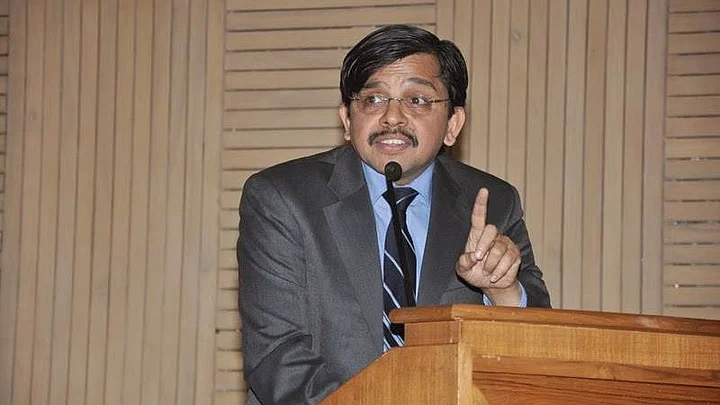The Delhi High Court Bar Association on Wednesday, 19 February, passed a resolution condemning the transfer of Justice S Muralidhar to the Punjab and Haryana High Court, and requested its members to “abstain from work” on Thursday, 20 February, as a token of protest.
“The Delhi High Court Bar Association expresses its shock, dismay and outrage at the transfer of one of the finest judges to have adorned the Bench – Hon’ble Dr Justice S Muralidhar – by the Collegium of the Hon’ble Supreme Court,” the resolution signed by DHCBA President Mohit Mathur and Secretary Abhijat says.
The Collegium – the body of senior Supreme Court judges headed by the Chief Justice of India that decides appointments and transfers of judges to the high courts and the apex court – had decided on 12 February to transfer Justice Muralidhar to the P&H High Court, a year after a similar move was prevented by Justice (retd) AK Sikri and Justice Sanjay Kishan Kaul.
Justice Muralidhar is perhaps best known for ruling (along with Justice AP Shah) that Section 377 of the IPC was unconstitutional in the Naz Foundation case back in 2009, a decision that was cited appreciatively by the Supreme Court when it finally held the same in 2018.
He is also known for his strong judgments against communal violence and invasion of civil liberties. He has authored judgments which include convicting the 16 UP PAC constables for the 1986 Hashimpura mass killing. He also led the bench that convicted the former Congress MP Sajjan Kumar for his role in the 1984 anti-Sikh riots.
The move to transfer the respected judge, who also worked for Bhopal Gas Tragedy victims pro bono when he was a practicing lawyer, has ignited debate in legal circles as a judge of his seniority would normally only be transferred to a different high court if he was being appointed as its chief justice – which is not the case here.
The fact that the same resolution also recommends the transfer of Justice Ranjit V More, a well-regarded judge of the Bombay High Court, to the Meghalaya High Court, has also raised eyebrows.
The DHCBA resolution, a copy of which has been forwarded to CJI SA Bobde, argues that these transfers “are not only detrimental to our noble Institution but also tend to erode and dislodge the faith of the common litigant in the justice dispensation system.”
It also warns that transfers of this sort could negatively effect “free and fair delivery of justice” by judges of the high courts, leading to a dangerous situation for judiciary.
As a result, the DHCBA urges the Collegium to revisit and recall their decision to transfer Justice Muralidhar. As mentioned earlier, they have also asked lawyers who are members of the Association to abstain from work for a day, “as the said transfer is a rarest of rare case, the majesty of our revered Institution is at stake.”
To ensure that this doesn’t create any undue disruption in the functioning of the court, the Executive Committee of the DHCBA also issued a list of proxy counsels to be present in each courtroom.
On 28 January 2019, The Indian Express reported that meetings of the Collegium had been held in December 2018 and January 2019 suggesting the transfer of Justice Muralidhar, but that these had been blocked by members of it. LiveLaw reported that Justice AK Sikri (since retired) and Justice Sanjay Kishan Kaul had strongly opposed the move.
(At The Quint, we question everything. Play an active role in shaping our journalism by becoming a member today.)
